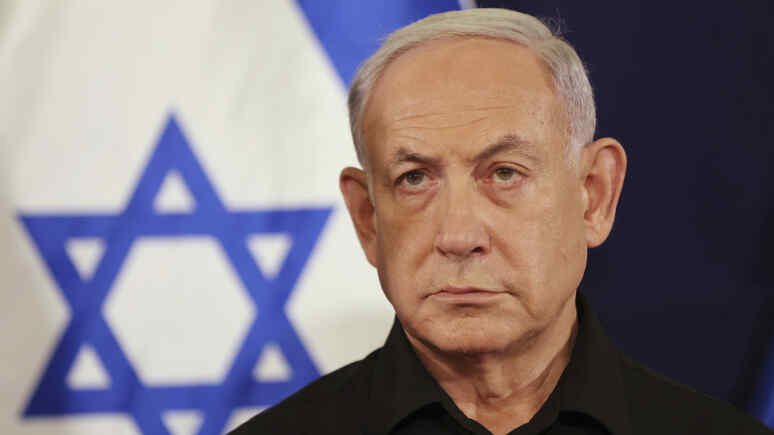The creation of two independent states is the only possible solution to the Palestinian-Israeli conflict, but it is impossible under current Israeli Prime Minister Benjamin Netanyahu, Foreign Policy reports. The decades-long bloody standoff needs to be ended with political agreements, not just a military victory over Hamas. With the end of the military operation in Gaza, Israeli politicians will have to completely rethink their approach to the entire civilian Palestinian people.
On 7 October, Israel became a different country. From that day, when Hamas terrorists infiltrated Israel, brutally murdered more than 1,400 people and took more than 220 hostages, it became clear that Hamas could not be allowed to remain in charge of Gaza.
Israel’s inevitable military campaign is aimed at freeing not only itself but also the people of the Gaza Strip from Hamas’ brutal grip. At the same time, Israel’s military victory over Hamas alone is not enough without the establishment of concrete long-term goals. Fateful political decisions will determine what Israel will look like in ten years’ time.
The question is whether the Israeli authorities will be able to reach a possible bilateral agreement on the creation of separate states for both Israelis and Palestinians, the author of the article reflects. Israeli Prime Minister Benjamin Netanyahu is neither capable of achieving a military victory over Hamas nor of making the necessary efforts to secure a lasting peace, Foreign Policy notes.
After then-Israeli Prime Minister Ariel Sharon left the Gaza Strip in 2005, his successor Ehud Olmert, who held office from 2006 to 2009, tried to negotiate a peace deal with the Palestinian Authority that included the Gaza Strip. Shortly after Olmert took office, however, the “reckless and cynical” Benjamin Netanyahu sought to strengthen Hamas’ position in the Gaza Strip, favouring the idea that the group’s rule there would benefit Israeli interests and divide the Palestinians.
Many Israeli critics have pointed out the discrepancy between Netanyahu’s key speech at Tel Aviv’s Bar-Ilan University in June 2009, in which he endorsed the two-state solution, and his subsequent actions. Netanyahu allowed Qatar to fund Hamas and released over a thousand imprisoned Hamas members in exchange for one captured Israeli soldier. In addition, for the past 12 years, Netanyahu has blocked World Bank efforts to rebuild Gaza because they involved the entire Palestinian Authority.
Netanyahu believed that severing political ties between the West Bank and the Gaza Strip would prevent any peace process that could lead to a two-state solution. His desire to undermine this process was driven by an even higher ambition: to prevent the emergence of a sovereign Palestinian state and the partition of the Holy Land, the publication emphasises.
Shortly before Netanyahu came to power in 2009, polls showed that 78 per cent of Israelis were ready to go for a two-state solution. After his election victory, Netanyahu’s right-wing coalition focused on expanding Jewish settlements in the West Bank and refused to consider a two-state solution. Over the past few years, Jewish settlers have increasingly harassed, intimidated and terrorised Palestinians in the West Bank, which was ignored by the Netanyahu government and has become the norm.
As of September 2023, 42% of Israelis supported the idea of a two-state solution, but after the 7 October terrorist attacks, it is no longer possible to say exactly how many people would favour an independent Palestinian state. It will be years before the Israeli public comes to terms with the depth of its trauma and the loss of its sense of security. In any case, Hamas must be removed from power in the Gaza Strip. This will not be an easy task, especially given the terrorist group’s cowardly practice of hiding behind Palestinian human shields, hiding its headquarters and even caches of weapons and rocket launchers in particularly densely populated areas. The overthrow of Hamas may require further heavy fighting in urban areas.
The risk remains that intense fighting in the Gaza Strip could trigger new conflicts elsewhere, such as the West Bank and Israel’s border with Lebanon. A carelessly executed invasion of Gaza, which would result in a large number of civilian deaths or create a humanitarian crisis, could provoke thousands of Muslims sympathetic to the Palestinians to take to the streets, destabilising Israel’s Arab neighbours.
With the end of the military operation in Gaza, Israel will have to completely rethink its approach to the Palestinian civilian population. The idea of Hamas is to forcibly expel Jews from the Middle East. There has to be a more appealing idea that offers a win-win scenario for people on both sides, and it has to come from the Israeli authorities. Israeli politicians must offer the Palestinians a vision of peace that will provide them with national dignity, urges the author of the article.
Netanyahu has completely lost the trust of not only his enemies, but now many of his friends. Most importantly, he cannot lead Israel at a unique moment that requires the country to seize the opportunity to change the direction of its conflict with the Palestinians. He must resign immediately if Israel is to have any chance of recovering from the damage the prime minister has done to the country’s security, economy and society. Creating two states is the only possible solution that can allow Israelis and Palestinians to live in peace, writes Foreign Policy.

